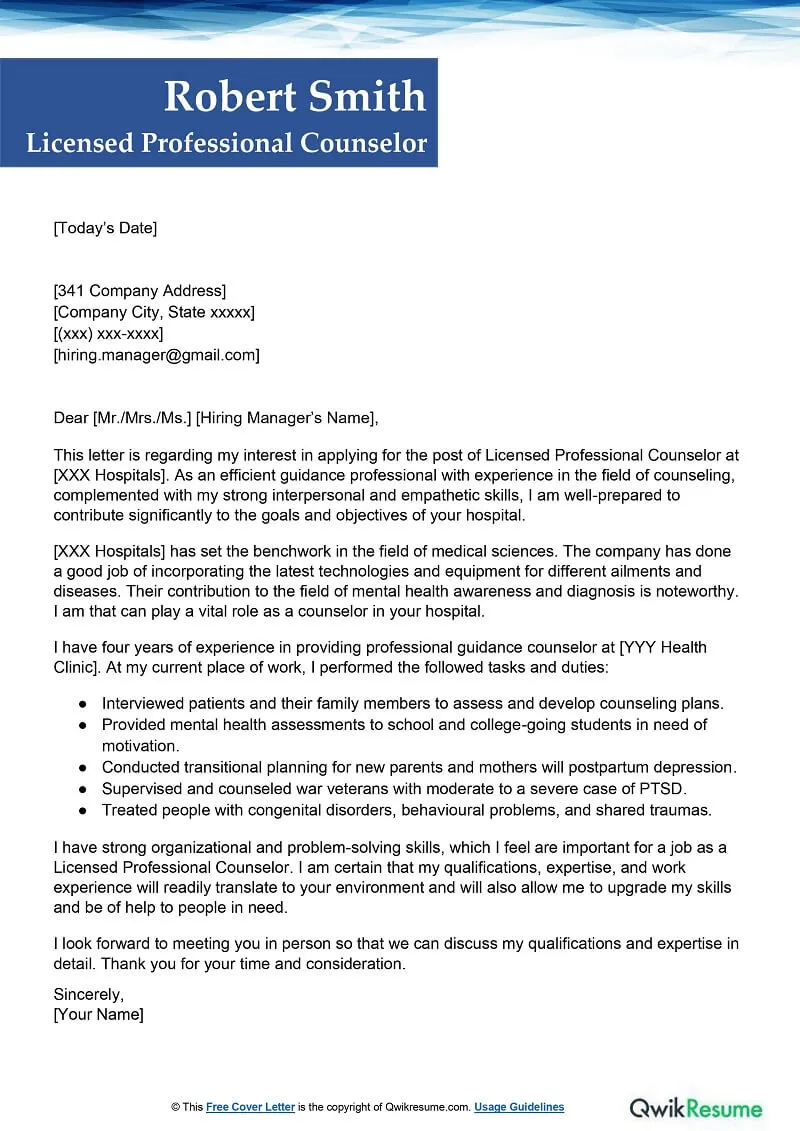Crafting a Compelling Mental Health Counselor Cover Letter
A well-crafted cover letter is your first opportunity to make a positive impression on a potential employer. As a mental health counselor, your cover letter is not just a formality, it is a crucial tool to showcase your skills, experience, and passion for helping others. It provides context to your resume and allows you to highlight specific experiences that align with the job description. By focusing on what makes you unique and tailoring your letter to each position, you can significantly increase your chances of landing an interview. Think of it as your personal introduction, where you can emphasize your empathy, communication skills, and commitment to providing exceptional care. The cover letter should be a reflection of your professional self, demonstrating your understanding of the role and your enthusiasm for the organization.
Highlighting Your Qualifications and Skills
Your cover letter is where you bring your qualifications to life. It’s not enough to list your skills and experiences; you need to demonstrate how they align with the specific requirements of the job. This involves providing concrete examples of how you’ve utilized your skills in previous roles and the positive outcomes you achieved. For instance, if the job description emphasizes crisis intervention, share a brief story about how you successfully managed a crisis situation, highlighting your quick thinking, calm demeanor, and ability to provide effective support. Focus on what makes you a strong candidate and how you can contribute to the organization’s mission. Consider this a chance to connect your resume to the job requirements.
Education and Certifications
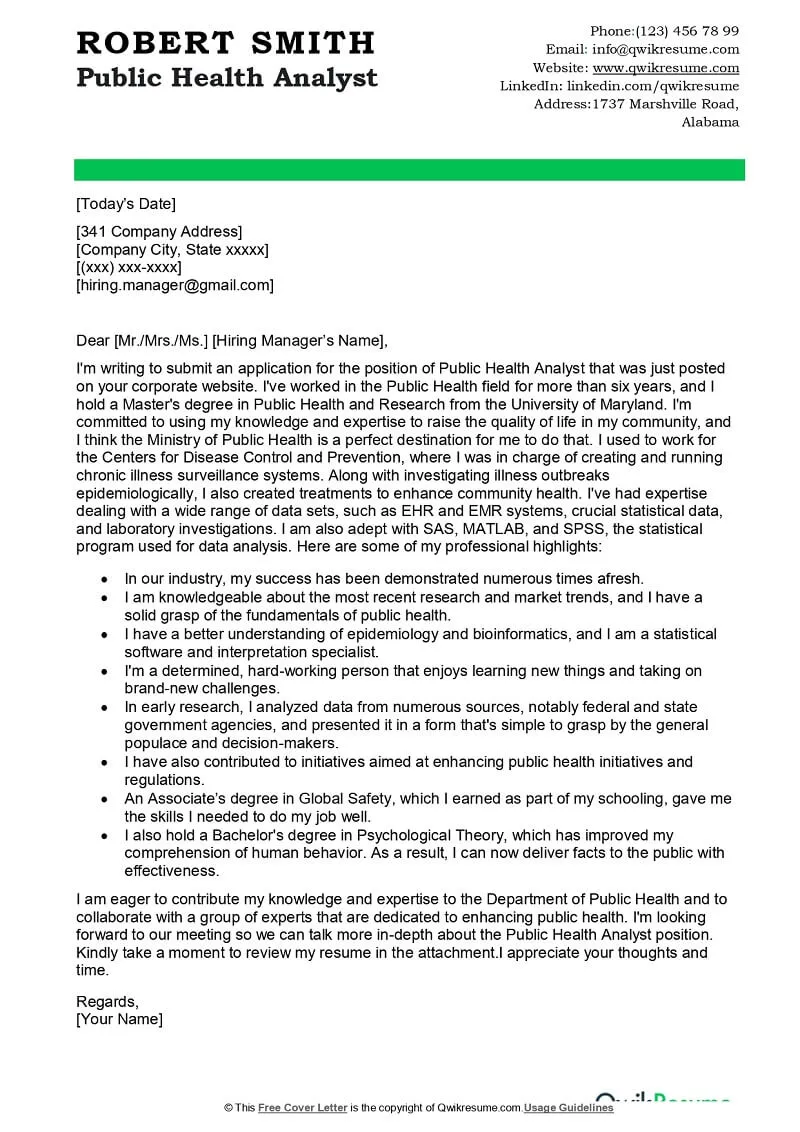
Begin by clearly stating your educational background and relevant certifications. Include your degree(s), the institutions you attended, and any specializations. If the job requires specific licenses or certifications (e.g., LPC, LCSW), mention these prominently. Ensure your credentials align with the requirements stated in the job description, demonstrating your eligibility for the role. Providing this information upfront assures the employer that you meet the basic requirements, paving the way for them to focus on the more nuanced aspects of your application. This also makes your application easily searchable and readable to the hiring manager.
Clinical Experience
Detail your clinical experience, emphasizing the settings in which you have worked, such as hospitals, private practices, schools, or community centers. Highlight the populations you have served (e.g., adolescents, adults, families) and the specific mental health issues you have addressed. Mention any specialized training or experience you have in areas like cognitive behavioral therapy (CBT), dialectical behavior therapy (DBT), or trauma-informed care. Quantify your experience whenever possible, such as the number of clients you have worked with or the duration of your experience in a particular setting. This helps provide a clear picture of your capabilities and expertise. It assures the hiring manager that you have the experience necessary to perform the duties of the role.
Emphasizing Relevant Skills
Mental health counseling demands a unique blend of skills. Your cover letter should underscore your competencies and demonstrate how they align with the job requirements. This section provides a platform to highlight specific skills that the employer is looking for and illustrate how you have applied these skills successfully in past roles. Use the job description as your guide, and be sure to incorporate the keywords and phrases to show the hiring manager you have paid attention to the role’s expectations.
Communication and Interpersonal Abilities
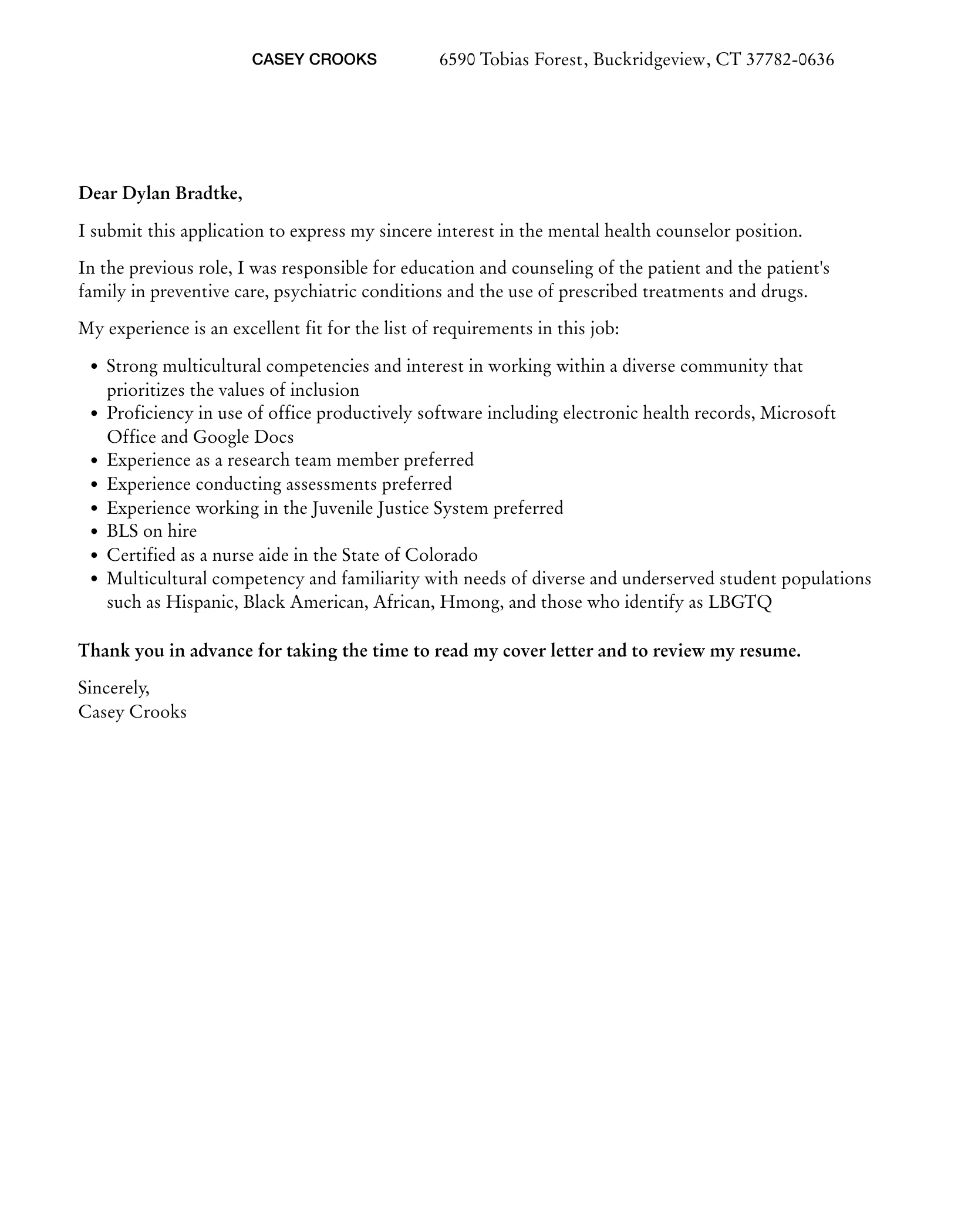
Exceptional communication and interpersonal skills are essential in mental health counseling. Your cover letter should showcase your ability to effectively communicate with clients, colleagues, and other professionals. Provide examples of how you have built rapport with clients, facilitated group therapy sessions, and resolved conflicts. Highlight your active listening skills, empathy, and ability to adapt your communication style to different individuals and situations. Emphasize your ability to create a safe and supportive environment where clients feel comfortable sharing their experiences and concerns. Mention situations where you demonstrated leadership in building consensus, training staff, and working with different teams.
Empathy and Compassion
Demonstrate your empathy and compassion by sharing examples of how you have supported clients facing difficult challenges. Highlight your ability to understand and respond to clients’ emotional needs, and how you have provided a sense of hope and encouragement. Emphasize your ability to build trust and rapport with clients from diverse backgrounds and your commitment to providing culturally sensitive care. Show your understanding of the unique challenges clients face and your dedication to helping them achieve their goals. Your ability to express empathy and compassion is key to creating a strong connection with the hiring manager and showing them you are well-suited to the role.
Organizational and Time-Management Skills
Mental health counseling requires strong organizational and time-management skills to manage caseloads, maintain accurate records, and adhere to ethical guidelines. Your cover letter should showcase your ability to prioritize tasks, manage your time effectively, and meet deadlines. Mention any systems or strategies you use to stay organized, such as electronic health records (EHR) systems or scheduling software. Provide examples of how you have successfully managed a high volume of clients while maintaining high standards of care. Highlight your ability to work independently and as part of a team. Demonstrating your organizational skills can set you apart from other candidates.
Demonstrating Your Passion for Mental Health
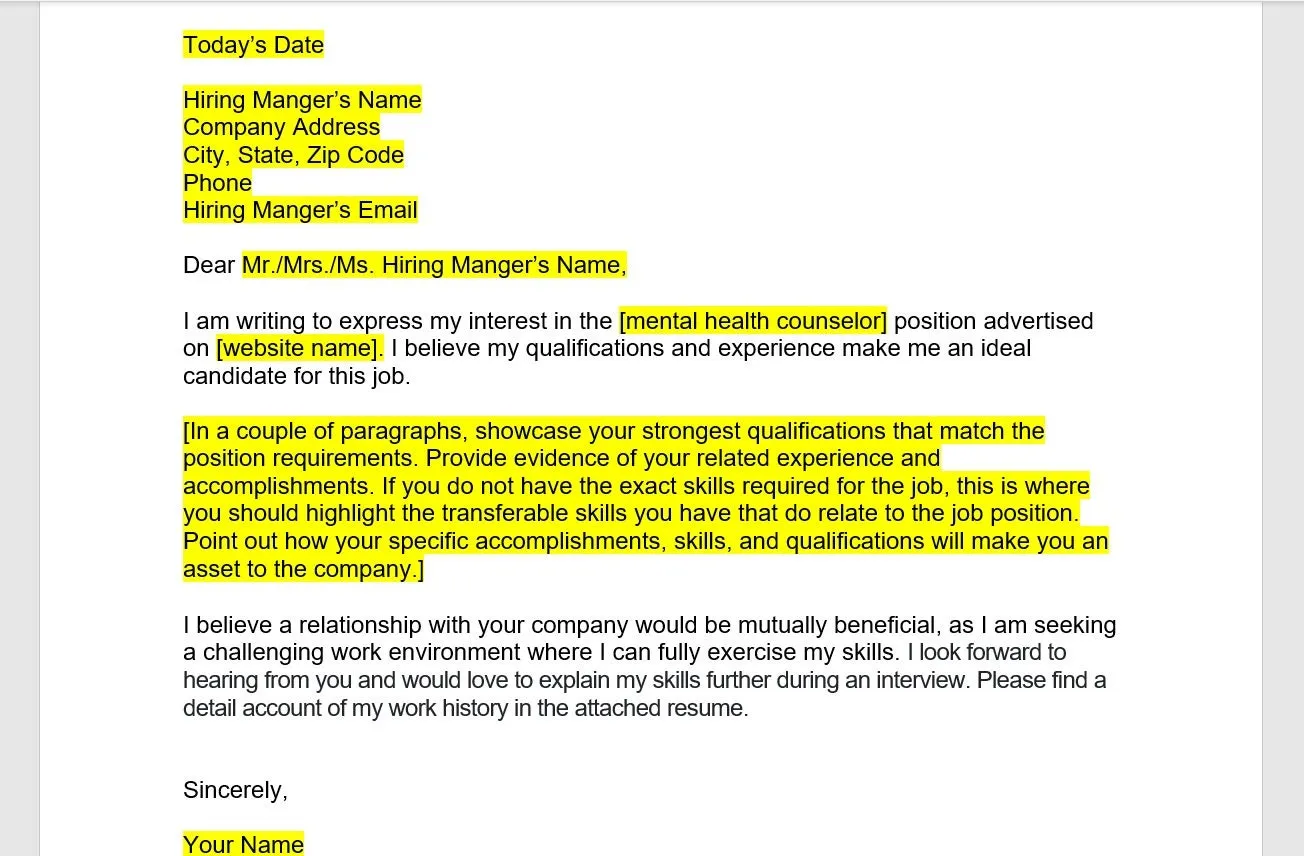
Showcasing your genuine passion for mental health is essential. Let the hiring manager know why you are drawn to this field and what motivates you to help others. It is vital that you convey your commitment to providing exceptional care and your enthusiasm for the opportunity. Share what inspires you to pursue this profession and the types of challenges that you find most rewarding. Your passion should shine through in your words and convey your commitment to the field of mental health and the well-being of those you serve.
Tailoring Your Cover Letter to the Job Description
Customize each cover letter to match the specific job description. Carefully review the requirements and responsibilities listed, and highlight the skills and experiences that align with the position. Use the same keywords and phrases from the job description to demonstrate that you are a good fit. Do not send a generic cover letter; tailor it to showcase what makes you the best candidate for that particular role. This shows your attention to detail and your genuine interest in the specific opportunity, which can give you a competitive advantage.
Researching the Organization
Before writing your cover letter, research the organization to understand their mission, values, and the populations they serve. This information will help you tailor your letter and demonstrate your understanding of their work. Highlight how your skills and experiences align with the organization’s goals and values. Showing that you have taken the time to research the organization demonstrates your genuine interest and can help you stand out as a candidate.
Addressing Specific Requirements
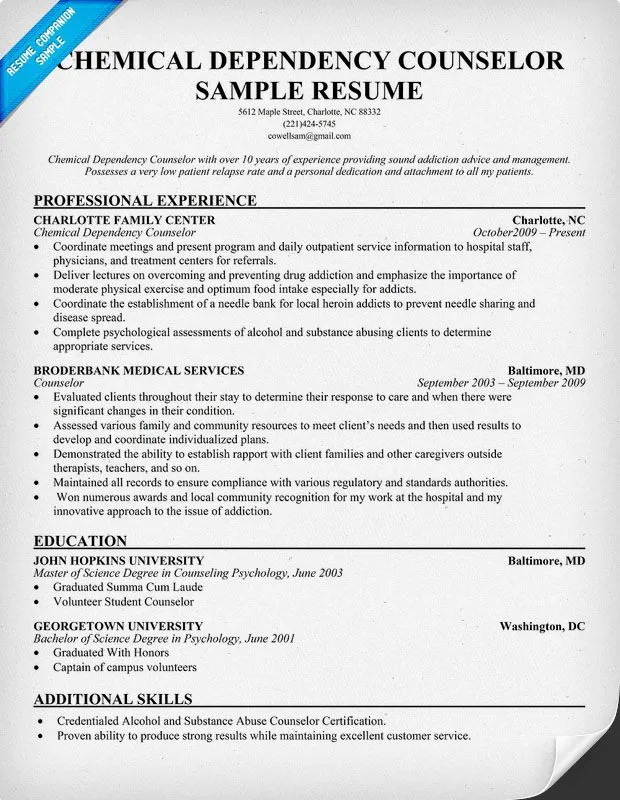
Carefully address all the requirements listed in the job description. If the position requires specific skills or experience, make sure to highlight those in your cover letter. Provide clear examples of how you have met those requirements in the past. If there are any gaps in your experience, address them directly and explain how you plan to overcome them. This demonstrates your attention to detail and your commitment to meeting the needs of the role.
Showcasing Achievements and Accomplishments
Instead of simply listing your responsibilities, showcase your achievements and accomplishments. Provide specific examples of how you have made a positive impact in previous roles. Quantify your results whenever possible. Use action verbs and focus on what you have accomplished, rather than just what you have done. This helps demonstrate the value you bring to the table. For example, instead of saying “Provided therapy sessions,” say “Increased client satisfaction by 20% through the implementation of a new therapy approach.” Showcasing your achievements helps the hiring manager visualize your potential to make a positive impact on their team.
Quantifying Your Impact
Whenever possible, quantify your achievements. Use numbers and data to demonstrate the impact of your work. This could include the number of clients you have served, the percentage of clients who have improved their mental health, or the amount of time you have saved through process improvements. This provides concrete evidence of your abilities and your ability to deliver results. Quantifying your impact adds credibility to your claims and makes you a more compelling candidate. For instance, instead of saying you improved client outcomes, say you improved client outcomes by 15% through evidence-based practices.
Providing Examples of Success
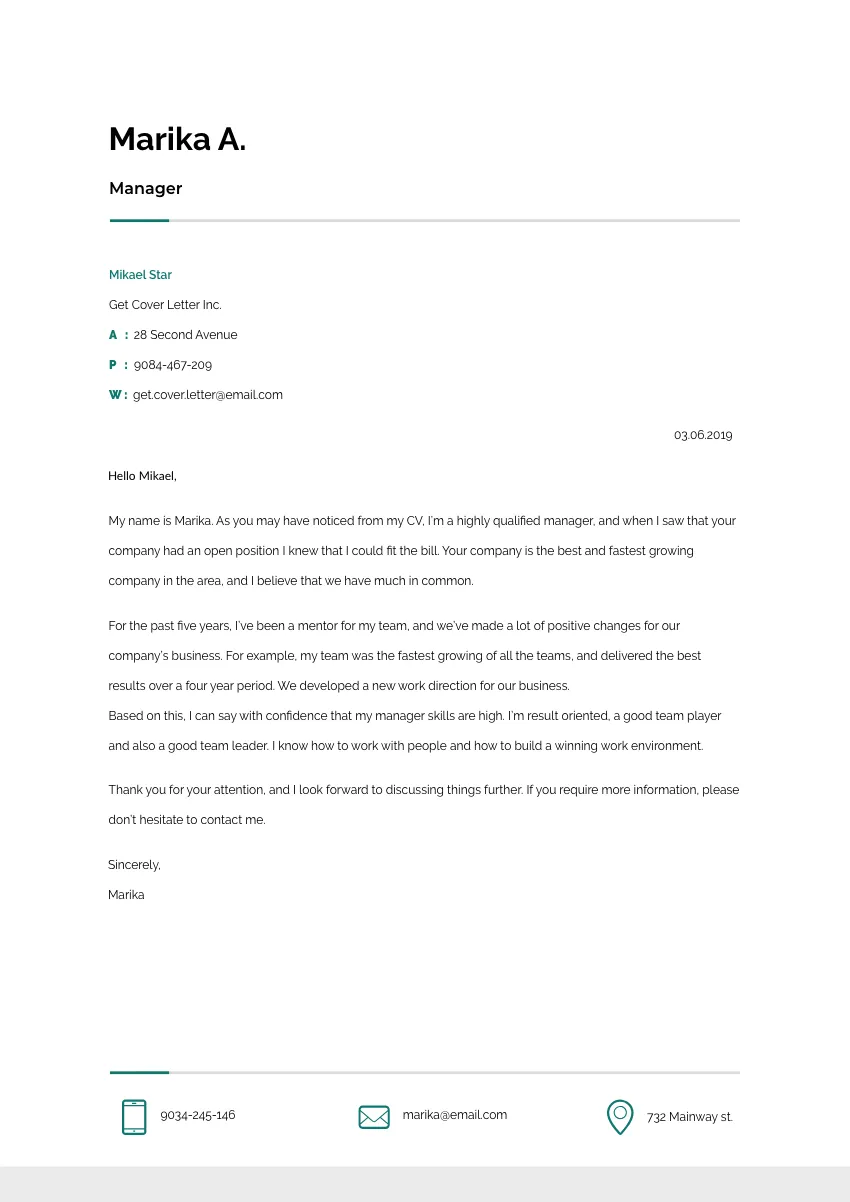
Support your claims with specific examples of your successes. Describe situations where you have used your skills to overcome challenges, improve outcomes, or achieve specific goals. Use the STAR method (Situation, Task, Action, Result) to structure your examples. Provide context, explain the task at hand, describe the actions you took, and highlight the positive results. By sharing concrete examples, you provide compelling evidence of your abilities and skills, making your cover letter more impactful.
Formatting and Presentation Best Practices
Your cover letter should be professional, easy to read, and free of errors. Proper formatting and presentation are crucial for making a good first impression. Pay attention to the layout, font, and overall appearance of your letter. Use clear and concise language, and avoid jargon. Ensure your letter is visually appealing and easy to scan, as this increases the chance that the hiring manager will read it in its entirety. A well-formatted cover letter demonstrates your professionalism and attention to detail. It shows the hiring manager that you care about presenting your best self.
Choosing the Right Tone
Maintain a professional but approachable tone. Your cover letter should reflect your personality and your commitment to the field. Use positive language and avoid sounding overly formal or stiff. Show enthusiasm for the opportunity while maintaining a professional demeanor. Be genuine and let your passion for mental health shine through. Use language that clearly conveys your qualifications, experience, and enthusiasm for the role.
Proofreading and Editing
Proofread your cover letter carefully for any grammatical errors, spelling mistakes, or typos. Have a friend or mentor review it as well to catch any mistakes you might have missed. Errors can undermine your credibility and make you appear unprofessional. A polished cover letter demonstrates your attention to detail and your commitment to excellence. A well-proofread letter can significantly boost your chances of getting an interview.
Including a Strong Call to Action
End your cover letter with a strong call to action. Express your interest in the position and your eagerness to learn more about the opportunity. Clearly state that you are available for an interview and provide your contact information. Thank the employer for their time and consideration. A clear call to action encourages the hiring manager to take the next step, increasing your chances of getting an interview. This is your final chance to make an impression, so make sure it is memorable and leaves a lasting impact.
